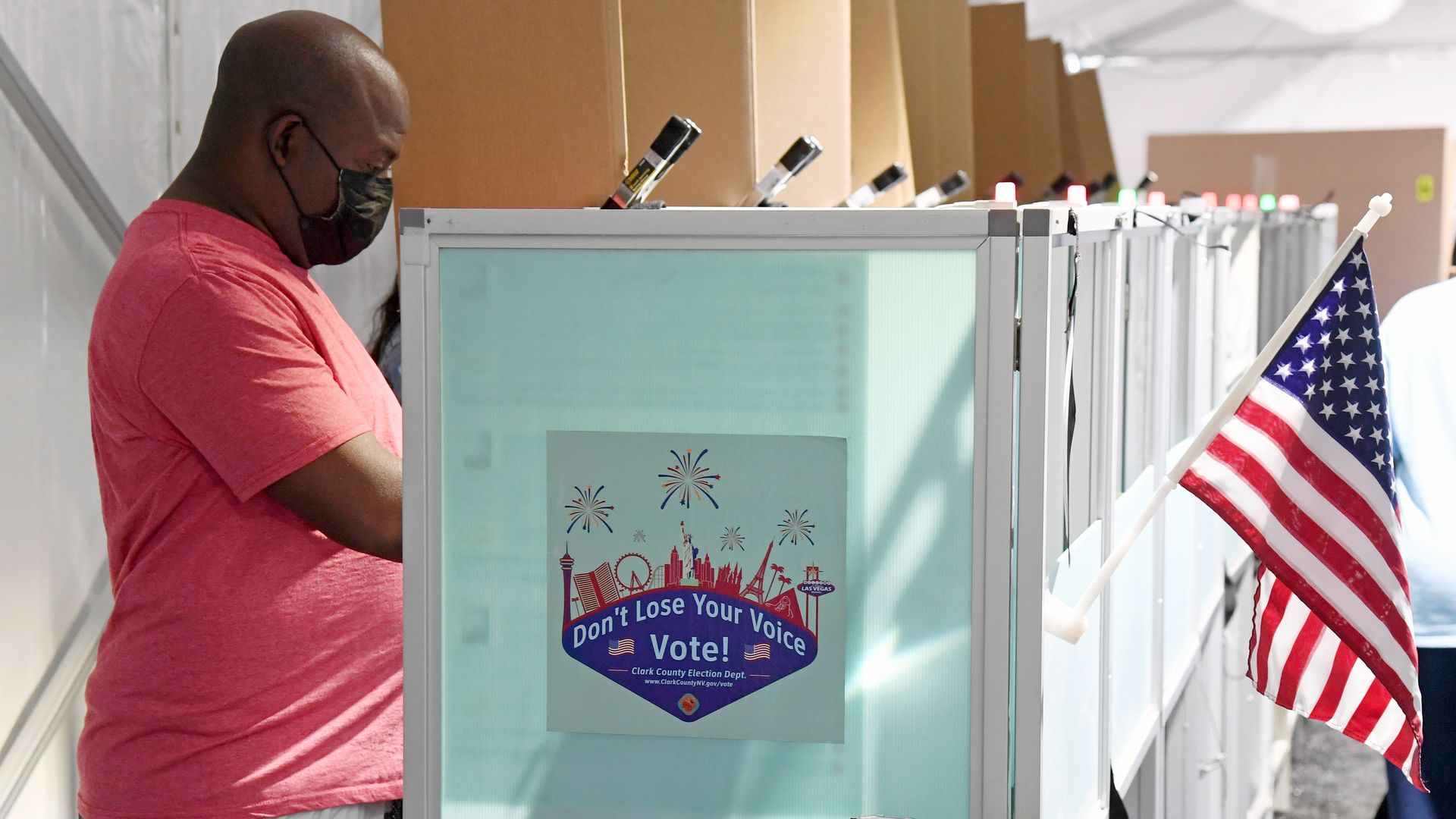Voter suppression misinformation spikes on Election Day
Add Axios as your preferred source to
see more of our stories on Google.

Photo: Ethan Miller/Getty Images
Election security officials and disinformation experts are on high alert over signs that Election Day misinformation aimed at suppressing votes is circulating widely, much of it outside the immediate view of companies and policymakers.
Why it matters: Ample focus is placed on what social media giants are doing to stop the spread of misinformation, but a lot of what's traveling widely so far this Election Day isn't on public platforms, but in texts, robocalls and private chat servers.
Driving the news: The FBI told reporters Tuesday it is investigating robocalls falsely telling people they can vote tomorrow if the lines today are long, per Politico's Eric Geller.
- The disclosure follows media reports including from the Washington Post suggesting a suspicious robocall campaign is warning people to "stay home," scaring them from in-person voting around the country.
- New York Attorney General Letitia James' office is investigating robocalls encouraging people to stay home on Tuesday, her office announced.
What they're saying: "From our analysis, the 'stay home, stay safe' robocalls popping up in states like Michigan have proven to be an elusive campaign for the wireless carriers to track," said Jim Tyrrell, a senior director of product marketing at telecom data services firm Transaction Network Services (TNS).
- Tyrrell says that TNS tracked a variation of this scam back in July, which may have been a test run to see what could be achieved on Election Day.
- He notes that the nature of the robocalls in this misinformation campaign, where wireless numbers are being spoofed and quickly rotated out, is a classic spamming approach.
Robocalls have turned out to be one of the easiest ways for misinformation to spread.
- According to the Washington Post report, an estimated 10 million calls in the past few days urged voters to "stay safe and say home."
- Michigan Gov. Gretchen Whitmer tweeted that an unknown party is spreading misinformation via robocalls in Flint, and Michigan Secretary of State Jocelyn Benson said in a statement that the robocalls are an attack on voting rights and to only trust information coming from trusted media, voting clerks and officials.
Messaging platforms are also very vulnerable to misinformation. At least two dozen groups on WeChat have been circulating posts meant to frighten Chinese Americans into staying home on Election Day, ProPublica reports.
- Misinformation targeted at Indian American voters has also spread widely on WhatsApp, widely used among the South Asian diaspora, in the weeks leading up to the election.
Yes, but: The rise in misinformation spreading behind closed doors doesn't mean the public internet is free of it.
- Untrustworthy, highly partisan sites have been especially active in publishing false or misleading election-related claims in recent weeks, according to NewsGuard, which rates the reliability of news sites.
- NewsGuard also finds that more than three dozen Facebook groups have become "super-spreaders" of election misinformation.
By the numbers: Unverified claims about voting problems like long times and fraud have been mentioned on social media 33,048 times, according to Zignal Labs, per a tweet from the NYT's Davey Alba.
Meanwhile: There's also the potential for glitches to unintentionally spread incorrect information. Some Instagram users are seeing messages saying Election Day is tomorrow, which Instagram is saying is a caching issue, per Protocol.
Be smart: There are many ways for misinformation to spread online, in private and public forums. The best thing to do is double-check everything you see and only trust official sources.
Go deeper: State officials say robocall campaign is encouraging voters to "stay home"

